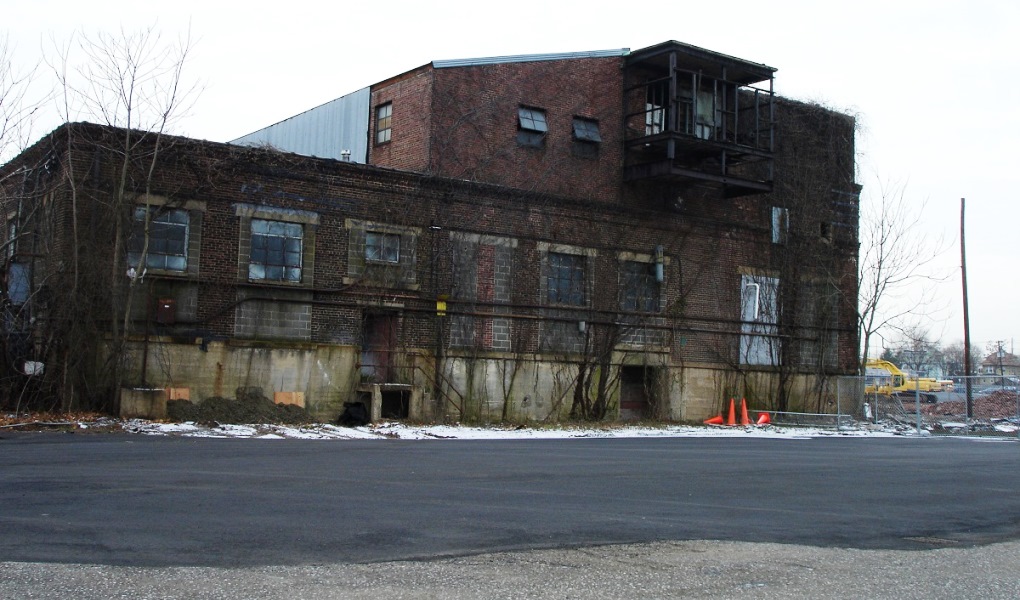On February 13, 2023, the U.S. Environmental Protection Agency (EPA) announced the second wave of approximately $1 billion in funding from the Bipartisan Infrastructure Law (BIL) to start new cleanup projects at 22 Superfund sites, and to expedite over 100 other ongoing cleanups across the country.
Thanks to weak environmental regulation, and poor enforcement of the few laws that existed, thousands of grossly-contaminated sites exist nationally due to hazardous waste being dumped, left out in the open, or otherwise improperly managed, including in manufacturing facilities, processing plants, landfills, and mining sites.
Taxpayers mostly pay for the cleanups, a dynamic known as corporate socialism: companies get the profits and taxpayers get the costs.
 As originally documented in the groundbreaking 2002 book, The Restoration Economy, Superfund sites were initially seen as lost causes that could never again be put back into productive use. But advances in cleanup technologies, combined with more-innovative strategies for reuse, have changed that.
As originally documented in the groundbreaking 2002 book, The Restoration Economy, Superfund sites were initially seen as lost causes that could never again be put back into productive use. But advances in cleanup technologies, combined with more-innovative strategies for reuse, have changed that.
Cleanups now help transform contaminated properties and create jobs in overburdened communities, while repurposing these sites for a wide range of uses, including public parks, retail businesses, office space, residences, warehouses, and solar power generation.
In addition, these sites can support natural areas, parks, and recreation facilities, providing greenspace and safe places for families to play outside.
“Thanks to President Biden’s historic investments in America, we are moving faster than ever before to progress clean up at contaminated sites – from manufacturing facilities to landfills – in communities across the country,” said EPA Administrator Michael S. Regan
“But our work is not yet finished – we’re continuing to build on this momentum to ensure that communities living near many of the most serious uncontrolled or abandoned releases of contamination finally get the investments and protections they deserve,” he added.
Tiny New Jersey is Superfund capital of the nation. The New Jersey sites included included in this new funding are the Cornell-Dubilier Electronics Inc. Superfund site in South Plainfield, the Mansfield Trail Dump Superfund site in Byram Township and the Matteo & Sons, Inc. Superfund site in West Deptford, New Jersey.
“New Jersey is home to the most Superfund sites in the nation, and I am proud to have helped secure the vital funding in the bipartisan infrastructure bill that will fund this work,” said Senator Bob Menendez.
“Today’s announcement means even more New Jersey communities will benefit from groundwater and soil remediation and improved public health, which will lead to cleaner and healthier communities and enhanced economic opportunity for residents, particularly here in South Plainfield, Byram and West Deptford. I want to thank the Biden Administration for their continued commitment to transforming communities who have been impacted by toxic contamination,” he added.
The Cornell-Dubilier Electronics, Inc. Superfund site is located in Middlesex County, New Jersey and addresses contamination from an electronic components manufacturer, which operated at a 26-acre facility in South Plainfield from 1936 to 1962.
Use and improper disposal of PCBs and solvents during the production process led to the contamination of soil, groundwater, and nearby areas, including Bound Brook, a tributary of the Raritan River.
The latest phase of the cleanup includes the removal of contaminated sediment from Bound Brook and nearby soil, proceeding downstream. This work has already started and is estimated to cost $152 million. BIL funding will support future cleanup project phases, extending as far as New Market Pond in Piscataway over the next several years.
“New Jersey has the most Superfund sites of any state in America,” said Senator Cory Booker.
“These sites, disproportionately located in Black, Brown, and low-income communities, contain toxic substances that expose nearby residents to elevated risks of cancers, birth defects, and other serious health problems. Since the passage of the Infrastructure Investment and Jobs Act, our state has received the federal support and resources necessary to remediate these sites, and today’s announcement will ensure that we continue our vital progress,” he explained.
The Mansfield Trail Dump Superfund site is located in a residential neighborhood in Byram Township, Sussex County, New Jersey. The site includes former waste disposal trenches that have contaminated the soil with lead (Pb) and polychlorinated biphenyls (PCBs), and the groundwater with trichloroethylene (TCE), causing drinking water quality issues for nearby residents.
EPA will use BIL funding to build a new waterline for impacted residents, providing them with secure access to clean drinking water. EPA will also remove soil that has been contaminated and begin capping and removing harmful vapors at the source of the contamination, as well as treating the groundwater to remove any harmful pollutants.
Until EPA installs the new waterline, the New Jersey Department of Environmental Protection will continue to monitor and maintain the water filtration systems at affected properties, ensuring they are functioning properly. EPA will continue the work for the waterline estimated to cost $8.7 million, and begin the other work at the site estimated to cost $11.5 million for the cleanup of soil and groundwater contamination with funding from the Bipartisan Infrastructure Law.
“New Jersey boasts the most Superfund sites in the country because we seek them out and clean them up—a mark not of indignity, but of our resolve,” said State Commissioner of Environmental Protection Shawn M. LaTourette.
“Thanks to the federal Bipartisan Infrastructure Law and the Garden State champions in Congress like Rep. Frank Pallone, who fought for its passage, our partners at USEPA now have the resources to accelerate long-overdue cleanup activities, including the removal of toxic contaminants from sediments of the Bound Brook in South Plainfield. On behalf of the people of New Jersey, and their environment, I thank our partners at USEPA for this and other critical work to clean up past environmental harms all across our state,” he added.
The Matteo & Sons Inc Superfund site is an 80-acre area in West Deptford, NJ that was previously used for lead battery recycling and waste disposal. These activities contaminated the soil, sediment, and groundwater, leading to environmental concerns at the site and in the surrounding community. The EPA will use funding from BIL to clean up the site by removing contaminated waste and soil and placing an asphalt cap over the affected area within the scrap metal recycling facility. EPA will begin the cleanup work estimated to cost $72.2 million with funding from the Bipartisan Infrastructure Law.
“For years, we’ve been trying to get this contaminated site cleaned up. Thanks to President Biden and the Infrastructure Investment and Jobs Act, which I proudly helped pass in Congress, we’re finally getting the job done,” said Representative Donald Norcross. “West Deptford families and business community don’t want to live and work near contaminated Superfund sites. It’s bad for our health and it’s bad for business. I’ll continue fighting in Congress to improve the environmental health and safety of South Jersey communities.”
This new $1 billion investment is the second wave of funding from the $3.5 billion allocated for Superfund cleanup work in the Bipartisan Infrastructure Law. With the first wave of funding announced in December 2021, EPA deployed more than $1 billion for cleanup activities at more than 100 Superfund National Priorities List sites across the country.
“New Jersey thanks its congressional delegation for securing funds that will further advance efforts by the EPA and DEP to foster healthy neighborhoods in our state,” said New Jersey Governor Phil Murphy. “Together with our federal partners, my Administration has worked tirelessly to confront legacy environmental hazards that for far too long have limited the potential of New Jersey communities. Remediating contaminated soil and water in every corner of our state will safeguard the growth and development of our children for generations to come.”
Thanks to this historic funding, EPA started 81 new cleanup projects in 2022, including projects at 44 sites previously on the backlog. By starting four times as many construction projects as the year before, EPA is aggressively bringing more sites across the country closer to finishing cleanup. In addition to funding cleanup construction work, this investment is enabling EPA to increase funding for and accelerate essential work needed to prepare sites for construction and ensure that communities are meaningfully involved in the cleanup process. In 2022, EPA more than doubled its spending for Superfund pre-construction activities like remedial investigations, feasibility studies, remedial designs, and community involvement.
“I’m proud to announce that help is on the way to clean up Superfund sites in New Jersey, including the Cornell-Dubilier Superfund Site in my district. Superfund sites threaten public and environmental health in New Jersey and across the country. The Bipartisan Infrastructure Law is delivering on the promise we made to clean up backlogged sites and give our communities the peace of mind they deserve,” Congressman Frank Pallone said. “I’m grateful to Administrators Regan and Garcia for working with us to get these sites cleaned up.”
EPA is committed to carrying out this work in line with President Biden’s Justice40 Initiative by advancing environmental justice and incorporating equity considerations into all aspects of the Superfund cleanup process. This will help ensure that historic and ongoing impacts of contamination on overburdened communities are fully considered and addressed.
Out of the 22 sites to receive funding for new cleanup projects, 60% are in communities with the potential for environmental justice concerns based on data from EJSCREEN, an environmental justice mapping and screening tool that provides EPA with a nationally consistent dataset and approach for combining environmental and demographic socioeconomic indicators.
“Today marks another important step in our ongoing efforts to clean up contaminated sites in New Jersey, which has the most Superfund sites in the country,” said Regional Administrator Lisa F. Garcia.
“With these new funds from President Biden’s Bipartisan Infrastructure Law, we are excited to continue our cleanup efforts by removing contaminated waste and soil, ensuring access to clean drinking water, and bringing more sites closer to finishing cleanup,” she continued.
In 1980, Congress passed the Comprehensive Environmental Response, Compensation, and Liability Act, known as Superfund. The law gave EPA the authority and funds to hold polluters accountable for cleaning up the most contaminated sites across the country. When no viable responsible party is found or cannot afford the cleanup, EPA steps in to address risks to human health and the environment using funds appropriated by Congress, like the funding provided by the Bipartisan Infrastructure Law.
Photo of Cornell-Dubilier Electronics, Inc. Superfund site courtesy of NOAA’s Damage Assessment, Remediation and Restoration Program.

